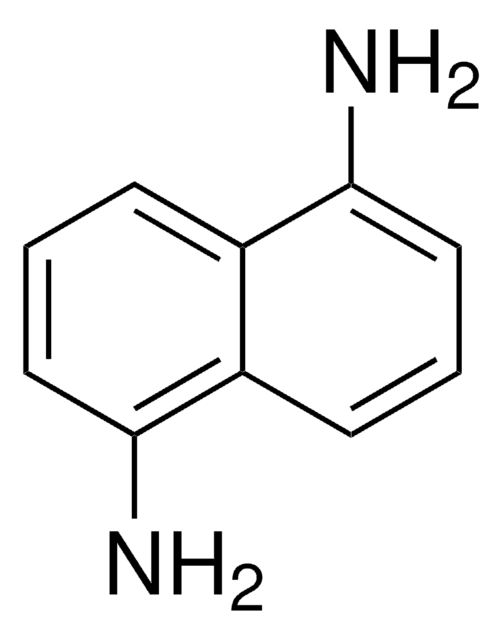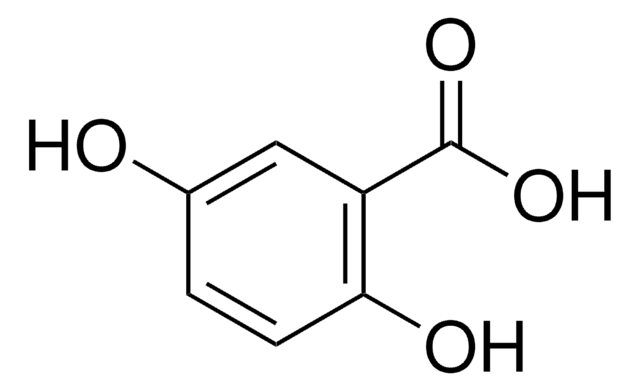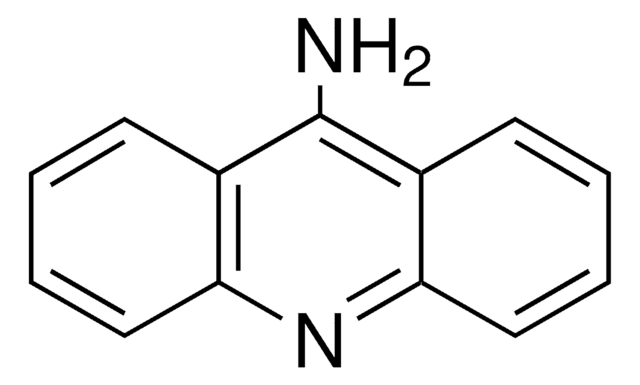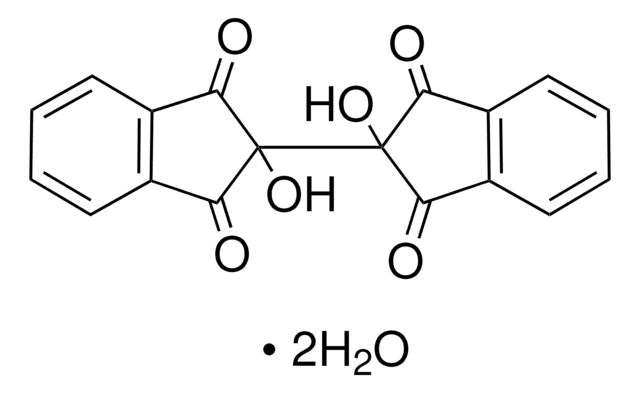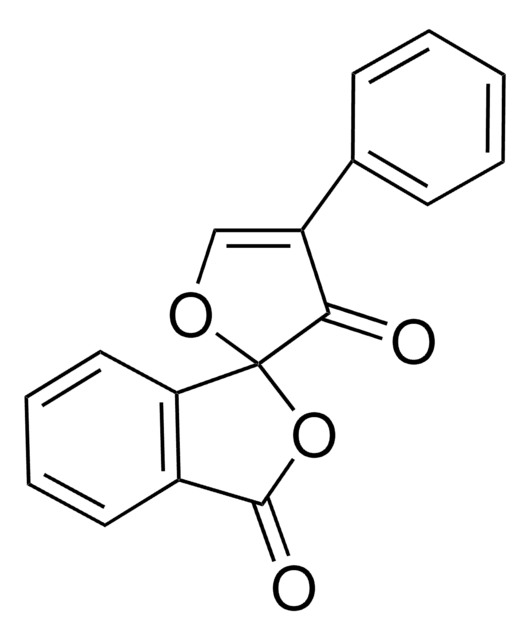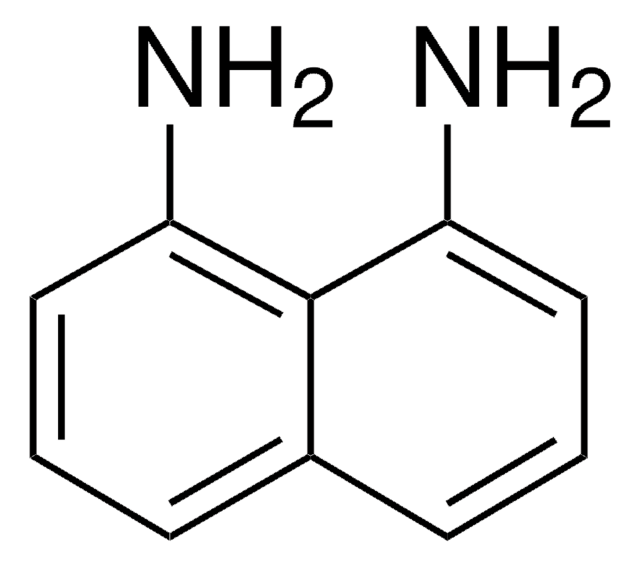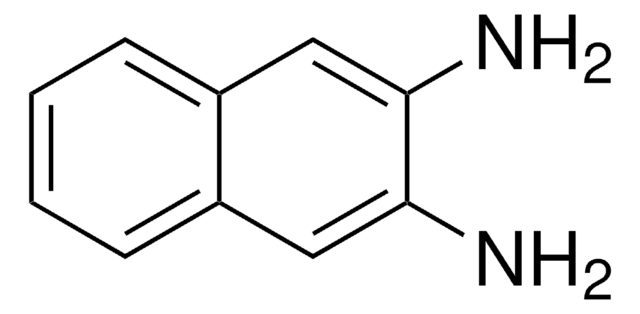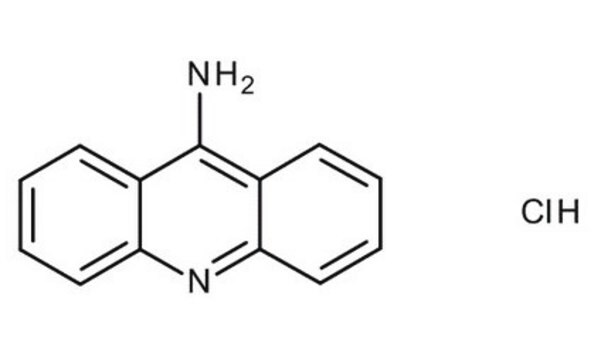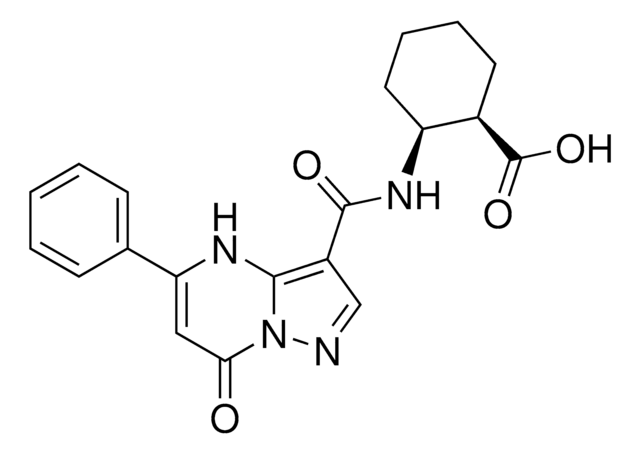56451
1,5-Diaminonaphthalene
matrix substance for MALDI-MS, ≥99.0% (HPLC)
Synonyme(s) :
1,5-DAN, 1,5-Naphthalenediamine, NSC 401110
About This Item
Produits recommandés
Qualité
matrix substance for MALDI-MS
Niveau de qualité
Essai
≥99.0% (HPLC)
Composition
carbon content, 75.92% (theory)
hydrogen content, 6.37% (theory)
nitrogen content, 17.71% (theory)
Classe(s) chimique(s) de l'analyte
oligonucleotides, peptides
Technique(s)
MALDI-MS: suitable
Pf
185-187 °C (lit.)
Traces de cations
Ba: ≤5.0 mg/kg
Ca: ≤20 mg/kg
Cd: ≤5.0 mg/kg
Co: ≤5.0 mg/kg
Cr: ≤5.0 mg/kg
Cu: ≤5.0 mg/kg
K: ≤10 mg/kg
Mg: ≤5.0 mg/kg
Mn: ≤5.0 mg/kg
Na: ≤10 mg/kg
Ni: ≤5.0 mg/kg
Pb: ≤5.0 mg/kg
Zn: ≤5.0 mg/kg
Adéquation
suitable for matrix substance for MALDI-MS
Chaîne SMILES
Nc1cccc2c(N)cccc12
InChI
1S/C10H10N2/c11-9-5-1-3-7-8(9)4-2-6-10(7)12/h1-6H,11-12H2
Clé InChI
KQSABULTKYLFEV-UHFFFAOYSA-N
Vous recherchez des produits similaires ? Visite Guide de comparaison des produits
Catégories apparentées
Description générale
Application
Conditionnement
Remarque sur l'analyse
Produit(s) apparenté(s)
Mention d'avertissement
Warning
Mentions de danger
Conseils de prudence
Classification des risques
Acute Tox. 4 Oral - Aquatic Acute 1 - Aquatic Chronic 1 - Carc. 2 - Skin Sens. 1
Code de la classe de stockage
11 - Combustible Solids
Classe de danger pour l'eau (WGK)
WGK 2
Point d'éclair (°F)
438.8 °F - DIN 51758
Point d'éclair (°C)
226 °C - DIN 51758
Faites votre choix parmi les versions les plus récentes :
Certificats d'analyse (COA)
Vous ne trouvez pas la bonne version ?
Si vous avez besoin d'une version particulière, vous pouvez rechercher un certificat spécifique par le numéro de lot.
Déjà en possession de ce produit ?
Retrouvez la documentation relative aux produits que vous avez récemment achetés dans la Bibliothèque de documents.
Les clients ont également consulté
Protocoles
A short abstract on a method using QuEChERS and GC/MS/MS for determination of fipronil & fipronil sulfone.
Notre équipe de scientifiques dispose d'une expérience dans tous les secteurs de la recherche, notamment en sciences de la vie, science des matériaux, synthèse chimique, chromatographie, analyse et dans de nombreux autres domaines..
Contacter notre Service technique